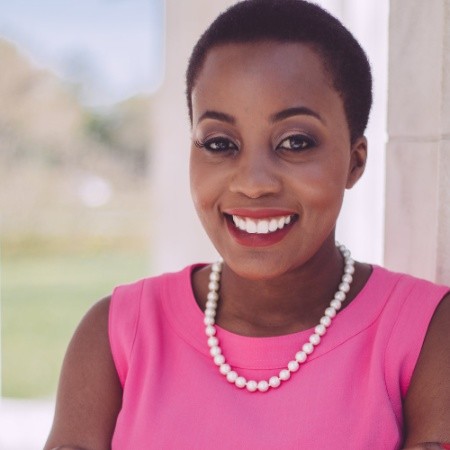Celebrate Digital Equity Advocates
Wednesday, November 4, 2020
Digital Beat
Celebrate Digital Equity Advocates
(Remarks when presenting the 2020 Charles Benton Digital Equity Awards)

2020 has laid bare so many inequities.
For those of us dedicated to closing the digital divide, we already realize the importance of universal access to affordable, High-Performance Broadband – and the skills needed to make best use of it.
- We know how important it is to our economic health and access to jobs.
- We know its crucial role in education and lifelong learning.
- We know how important it is to personal and community health and well-being.
- We know broadband access can mean more convenient, more efficient use of government services.
2020 has been so dark. In the throes of a pandemic, we know so much has been lost – is still being lost.
But for just a few moments, let us celebrate the achievements of digital equity advocates. Because 2020 only proves how essential our work is.
Millions in the U.S. have lost jobs this year. But digital equity advocates have helped people find new employment because of their connections to and expertise with the internet.
Schools around the country closed but, because of digital equity advocates, some kids who would have been blocked from online classrooms were able to connect and keep learning.
Doctors curtailed routine visits, but digital equity advocates helped connect those able to make use of telehealth services and help them stay well.
Government officials closed their facilities, but the people digital equity advocates connected were able to access services online.
We all wish that, after all these years of fighting for digital equity, everyone could have been able to use broadband at a time it would have meant more lives saved. But let us not forget the work that has been done this year that saved lives.
Today we honor two digital equity advocates
- Daniel Noyes, the Co-Chief Executive Officer at Tech Goes Home; and
- Rebecca Kauma, the Economic and Digital Inclusion Program Manager for the City of Long Beach, California.

Digital equity is a three-legged stool, relying on skills, hardware, and internet access. Under Dan Noyes’s leadership, the Tech Goes Home model tackles digital exclusion by providing 15 hours of digital skills training, a new computer to course graduates for $50, and help finding and securing low-cost, high-quality Internet service. To date Tech Goes Home has served more than 35,000 people and distributed over 22,500 new computers.
Tech Goes Home uses a train-the-trainer program model, which allows it to serve over 5,500 participants each year with only seven full-time employees.
Dan is vocal on the local, regional, and national digital equity stages. He is not afraid to speak truth to power when it comes to advocating for digital equity. He takes every opportunity to discuss how Internet Service Providers can and should improve their low-cost offerings.
“The system is broken,” says Dan. “I don’t think that just because you’re wealthy, you should have better internet than someone who isn’t. You don’t get better electricity just because you’re rich.”
******

Rebecca Kauma is currently spearheading the Digital Inclusion Roadmap development process in Long Beach, California. She has intentionally incorporated an equity lens into the governance, planning, development and implementation of the Roadmap.
Her inclusion practices include recruiting community members and local cross-sector partners in the Committee. In an effort to understand the “why,” she disaggregated digital divide data and performed a root cause analysis to better prioritize communities and/or neighborhoods most in need. And she’s created and implemented community outreach efforts, in multiple languages, to educate the Long Beach community about digital inclusion services and resources currently available in the city. Rebecca’s collaborative approach centers around collective impact.
Rebecca’s early background includes public health and healthcare administration. Her devotion to diversity, equity and inclusion stems from her experience in addressing health disparities and inequities.
I hope you will all join me in recognizing and thanking --
- The 2020 Charles Benton Digital Equity Champion, Daniel Noyes of Tech Goes Home; and
- The 2020 Charles Benton Digital Equity Emerging Leader, Rebecca Kauma from the City of Long Beach.
Congratulations to you both!
Adrianne B. Furniss is the Executive Director of the Benton Foundation.
The Benton Institute for Broadband & Society is a non-profit organization dedicated to ensuring that all people in the U.S. have access to competitive, High-Performance Broadband regardless of where they live or who they are. We believe communication policy - rooted in the values of access, equity, and diversity - has the power to deliver new opportunities and strengthen communities.
© Benton Institute for Broadband & Society 2020. Redistribution of this email publication - both internally and externally - is encouraged if it includes this copyright statement.
For subscribe/unsubscribe info, please email headlinesATbentonDOTorg






